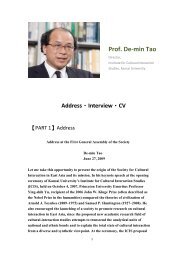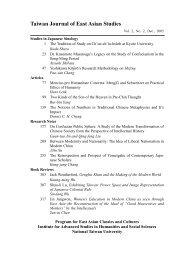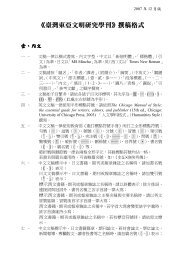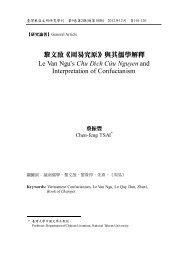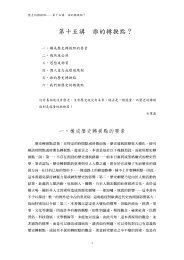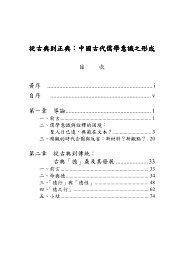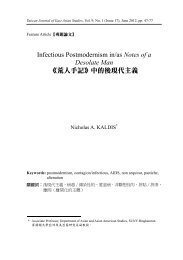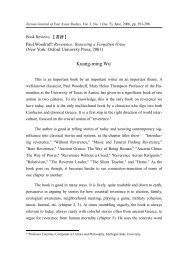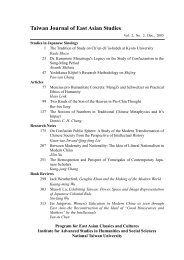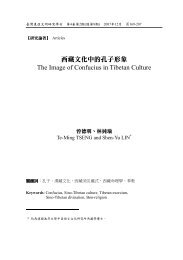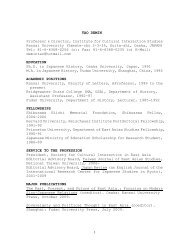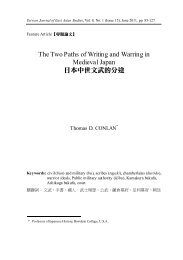臺灣東亞文明研究學刊 - 東亞經典與文化研究計畫 - 國立臺灣大學
臺灣東亞文明研究學刊 - 東亞經典與文化研究計畫 - 國立臺灣大學
臺灣東亞文明研究學刊 - 東亞經典與文化研究計畫 - 國立臺灣大學
You also want an ePaper? Increase the reach of your titles
YUMPU automatically turns print PDFs into web optimized ePapers that Google loves.
234 Taiwan Journal of East Asian Studies, Vol. 4, No. 2 (Iss. 8), Dec., 2007<br />
prevented from proceeding to open breaches; or if at some times wars could<br />
no way be avoided, they might be neither lasting nor bloody. 4<br />
Overall, Fletcher's message was clear. Scotland's problems were symptomatic<br />
of Europe's and could only be controlled by the sort of political engineering that<br />
would strengthen the economic, political and cultural power of provinces. For<br />
Fletcher the message of modern history to the emperors and nations of Europe was,<br />
modernise or perish.<br />
Turning to David Hume's attitudes to Europe, means turning to a different<br />
generation and a different historical moment in Scottish history. But it also means<br />
turning to thinking which, like Fletcher's, was conditioned by Hume's understanding<br />
of his own country's fortunes and its changing relations with England. By the<br />
middle decades of the century the Anglo-Scottish union was not only a fact of<br />
political and cultural life but had been given definition by a distinctive ideology<br />
which Hume, like Fletcher was to articulate in a distinctive way. The Union itself<br />
had been the sort of arrangement Fletcher had feared most, an incorporating union<br />
which had transferred the powers of the Scots parliament and privy council to<br />
London. But paradoxically the power of Fletcherian thinking had been enough to<br />
ensure that Union would leave Scotland with the infrastructure of a viable civil<br />
society the effective control of which would remain in the hands of the existing<br />
Scottish political elite. The church, the legal system, the system of local government<br />
and the electoral system were left undisturbed and Scottish merchants were given<br />
free access to English markets at home and overseas as a concession to the Scots<br />
belief that the expansion of trade and commerce was essential to the rebuilding of<br />
the Scottish economy and to the maintenance of civil society. Hume was born in<br />
1711 and grew up at a time when the new Union was experiencing a series of<br />
political, economic and psychological problems which served to emphasise the<br />
4 "An Account of a Conversation," Andrew Fletcher, Andrew Fletcher, p. 205.<br />
x



